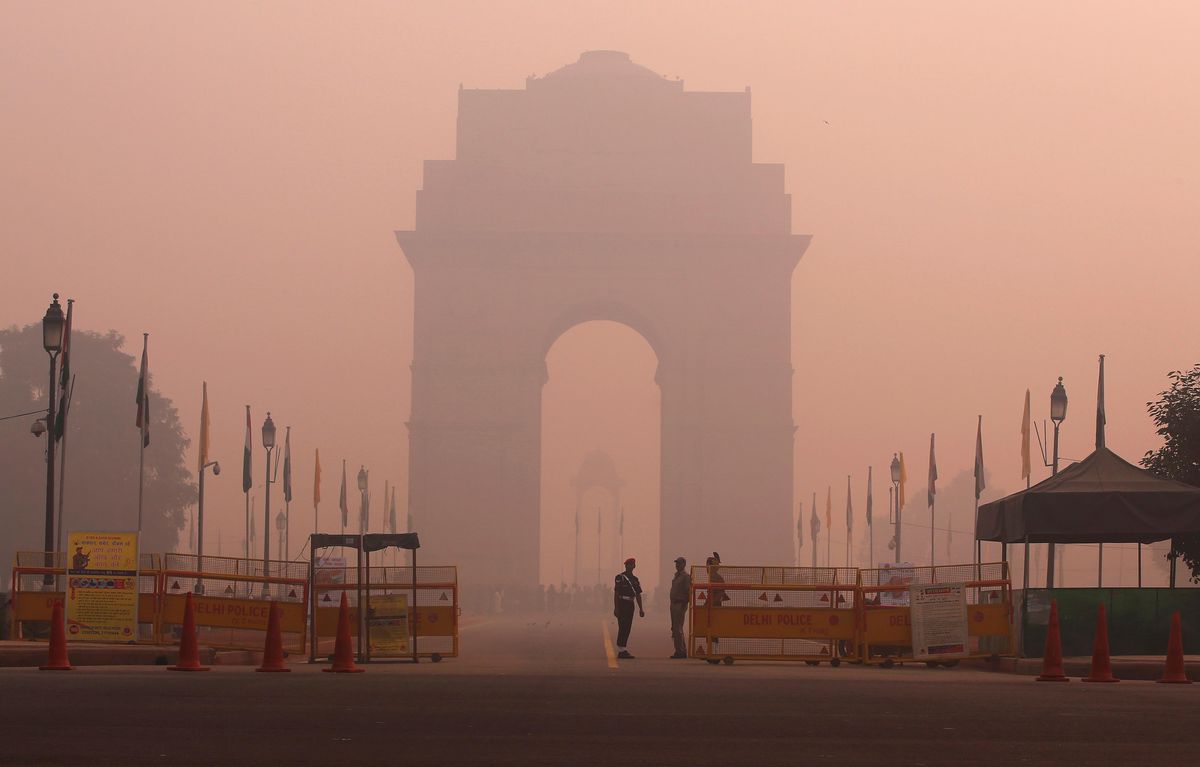India, the world's third largest emitter of carbon dioxide, is one of the countries worst affected by climate change. But it takes issue with those now asking it to clean up its act. Why, the Indians ask, should we give up our right to get rich by burning fossil fuels like you developed economies have done for generations?
That's precisely the message that India's energy minister had for the US and other wealthy nations at a recent Zoom summit after they pressured Delhi to set a future deadline for net zero emissions. For India, he explained, such targets are "pie in the sky" aspirations that do little to address the climate crisis the country faces right now.
High stakes. The impacts of climate change will be severe for India. Parts of the country are set to become unbearably hot in the coming years. Torrential monsoon rains are becoming more frequent and unpredictable, as are droughts, which will hinder the agriculture's sector ability to feed 1.4 billion people and employ nearly 60 percent of the labor force.
Melting glaciers may alter the course of the Indus, Ganges, and Brahmaputra rivers, making it harder for farmers to irrigate crops. And tens of millions of Indians live in low-lying areas that could be underwater in a couple of decades.
Taking action. Faced with such grim prospects, India says it's doing its part to turn the tide. The country is one of the few currently on track to meet its emissions reduction target in the 2015 Paris Climate Accord, and is very close to achieving its objective of using 40 percent of renewable energy sources by the end of the decade.
Prime Minister Narendra Modi has been internally recognized for driving India to become a global climate champion. His government has spurred massive public and private investment in clean energy, especially solar, where India is now a major player due to ultra-low prices. But that's not the entire story.
Coal remains king. India still burns a lot of coal. In fact, coal powers about half of the country's electricity generation. As the Indian economy grows, so will demand for coal — and the air in megacities like Delhi and Mumbai will get even more toxic.
And it's not just coal. Eliminating dirty household fossil fuels for cooking, heating and lighting would fix India's air pollution problem without any changes to industrial or vehicle emissions. But an attempt by the government to force hundreds of millions of low-income Indians to use more expensive green alternatives would likely be met with the same fierce resistance that farmers have shown to Modi's new laws to make the agriculture sector more business-friendly.
To drastically cut emissions, India needs cash. Delhi believes that rich nations should spend less on going "net zero" themselves and more on helping developing countries realize their climate action plans with less stringent requirements. Why, the Indians ask again, should wealthy nations demand that we all go green but only we stay poor, when you still get most of the available climate finance money, and yet it is we who will suffer the most?
For India, it's high time to shift the burden of paying for climate action to those who caused Earth to warm in the first place. But will that argument convince rich countries to divert funds intended to reach their own targets so India won't have to choose between economic growth or saving the environment? We may find out in a couple of weeks at Joe Biden's Earth Day Summit.

















